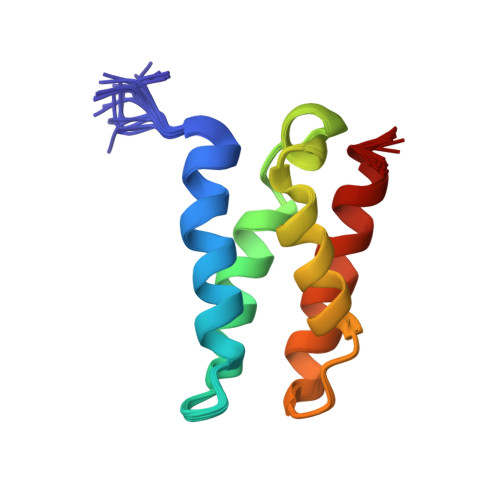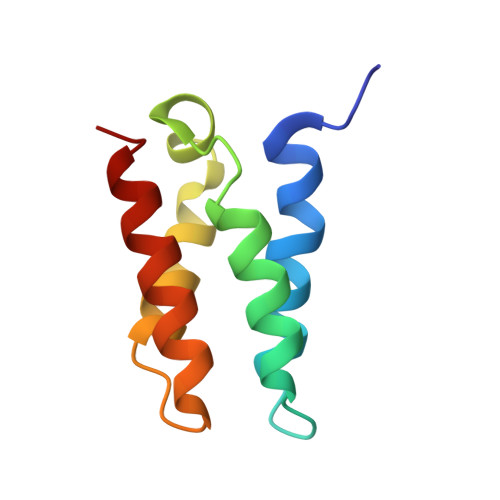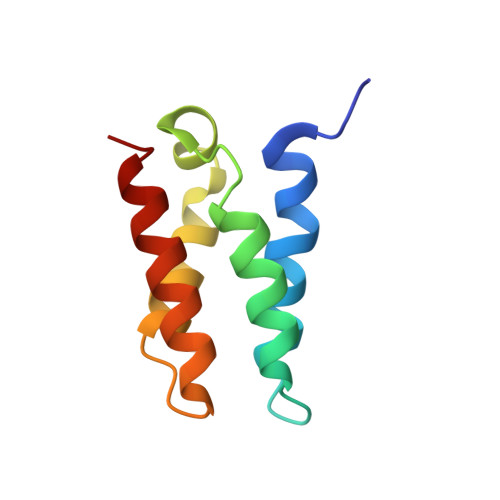Unlike Its Paralog LEDGF/p75, HRP-2 Is Dispensable for MLL-R Leukemogenesis but Important for Leukemic Cell Survival.
Van Belle, S., El Ashkar, S., Cermakova, K., Matthijssens, F., Goossens, S., Canella, A., Hodges, C.H., Christ, F., De Rijck, J., Van Vlierberghe, P., Veverka, V., Debyser, Z.(2021) Cells 10
- PubMed: 33477970
- DOI: https://doi.org/10.3390/cells10010192
- Primary Citation of Related Structures:
6T3I - PubMed Abstract:
HDGF-related protein 2 (HRP-2) is a member of the Hepatoma-Derived Growth Factor-related protein family that harbors the structured PWWP and Integrase Binding Domain, known to associate with methylated histone tails or cellular and viral proteins, respectively. Interestingly, HRP-2 is a paralog of Lens Epithelium Derived Growth Factor p75 (LEDGF/p75), which is essential for MLL -rearranged ( MLL -r) leukemia but dispensable for hematopoiesis. Sequel to these findings, we investigated the role of HRP-2 in hematopoiesis and MLL -r leukemia. Protein interactions were investigated by co-immunoprecipitation and validated using recombinant proteins in NMR. A systemic knockout mouse model was used to study normal hematopoiesis and MLL-ENL transformation upon the different HRP-2 genotypes. The role of HRP-2 in MLL -r and other leukemic, human cell lines was evaluated by lentiviral-mediated miRNA targeting HRP-2. We demonstrate that MLL and HRP-2 interact through a conserved interface, although this interaction proved less dependent on menin than the MLL-LEDGF/p75 interaction. The systemic HRP-2 knockout mice only revealed an increase in neutrophils in the peripheral blood, whereas the depletion of HRP-2 in leukemic cell lines and transformed primary murine cells resulted in reduced colony formation independently of MLL -rearrangements. In contrast, primary murine HRP-2 knockout cells were efficiently transformed by the MLL-ENL fusion, indicating that HRP-2, unlike LEDGF/p75, is dispensable for the transformation of MLL-ENL leukemogenesis but important for leukemic cell survival.
Organizational Affiliation:
Laboratory for Molecular Virology and Gene Therapy, Department of Pharmaceutical and Pharmacological Sciences, KU Leuven, 3000 Leuven, Flanders, Belgium.


















